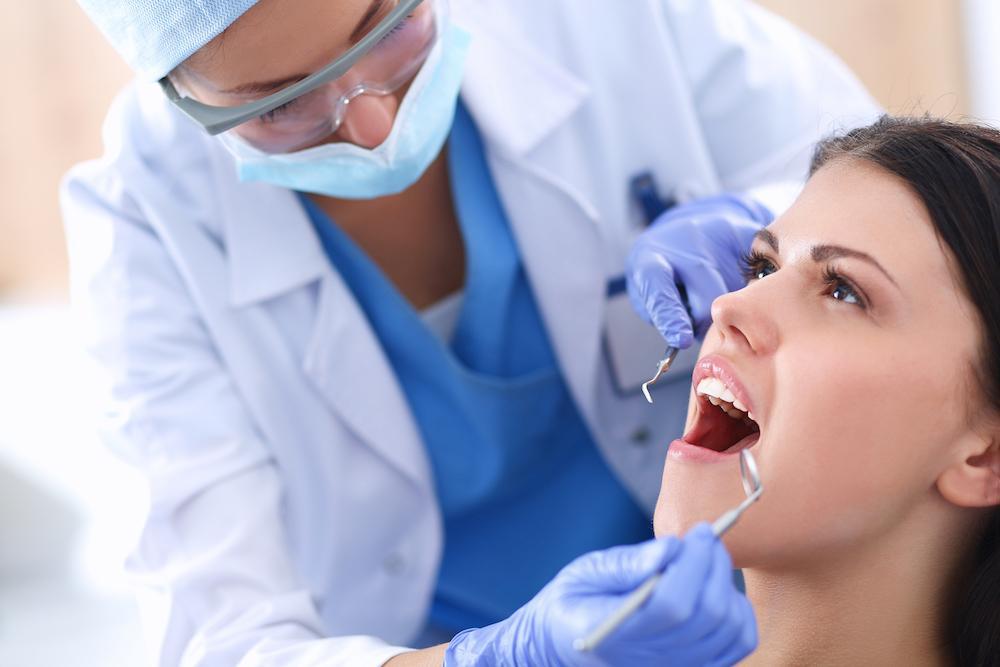
How To Take Care Of Your Mouth After Dental Extractions

Despite the fact that permanent teeth are intended to last for life, removal is far from uncommon. It’s also a safe and trouble-free procedure. However, there are several steps at home that you need to follow to ensure a full and speedy recovery. Dr. Darj offers the following list:
1. Rest
In the twenty-four hours following dental surgery, try to take as much rest as you can. Even if you feel fine do not engage in too much physical activity or exercise. While you are resting, keep your head slightly elevated on the pillow.
2. Let It Clot
Allow clotting to occur on the tooth extraction site. You will be given gauze to bite on after the procedure. Biting on the gauze keeps the pressure on the wound and prevents it from bleeding excessively. Dr. Darj advises patients to keep biting on gauze for an hour or more after the removal. However, be careful not to chew on the gauze piece. Keep changing the gauze every thirty minutes or so depending on the amount of bleeding.
Should the bleeding persist several hours after the surgery, call the office.
3. Ice Packs
Simple tooth extractions usually don’t lead to excessive swelling. To minimize the likelihood, apply Ice packs fifteen minutes on and fifteen minutes off for one to two hours following your extraction.
4. Don’t Smoke
Smoking is discouraged at any time but especially during the first forty-eight hours following tooth extraction. The chemical present in the smoke might interfere with the clotting process drastically. It also increases the chances of developing dry socket three to four days after the surgery.
5. Warm Saline Rinses
Since it is not possible to brush or floss after the surgery, warm saline rinses can help keep the area of extraction clean. Adding salt makes water isotonic just like the natural tissue fluid, therefore less irritating than natural water. It is advisable to start rinsing after twelve hours to cleanse and maintain the hygiene of the wound.
6. Avoid Solids
After the extraction procedure, stick to soft foods such as mashed potatoes or take liquids such as soups, smoothies, and milkshakes. When the numbness fades, and you start feeling your jaw, you can start eating solid foods. Do not suck the liquids from a straw.
7. Avoid Aspirin
Aspirin is a blood thinner. Thinned blood takes longer to clot therefore delaying the process of healing. Stick to the prescription recommended by your dentist and consult them before you take any other medicine.
8. Take Your Medicine As Prescribed
Make sure to follow any instructions regarding any antibiotics, painkillers, or anti-inflammatory medications that are prescribed. Be sure to take the whole dosage. Do not stop the medication halfway even if you are no longer in pain. If the pain continues for more than two days or bleeding starts, you should call Dr. Darj.
9. Do Not Poke Into The Gap
You will take some time, probably even days to get used to the feeling of having a gap. However, do not poke the gap using toothpicks or your tongue. Poking may delay healing, provoke bleeding or lead to a dry socket.
When To Call Dr. Darj
It is possible that complications may arise after a dental extraction. If you notice any of the signs below you should call the doctor immediately:
- Excessive bleeding
Bleeding that continues for more than forty-eight hours. Slight bleeding is normal after a tooth is extracted, but a dentist should examine heavy bleeding that goes on for many hours.
- Bone sequestra
Small sharp tooth fragments that may be left after surgery will slowly work themselves through the gums during the healing period. The process is a little painful and the pain may persist until the dead tooth fragments are removed. Call the dentist should you notice sharp fragments poking through the site of surgery.
- Dry socket
Although this is not an infection, it might still require a visit to the dentist to have the pain relieved. The obvious symptom of a dry socket is a throbbing and severe pain that shoots up to the ear.
Bottom line
The aftercare is essential to proper healing and to minimize the pain and risk of infection. If you have any questions or need assistance, contact Dr. Darj by phone, or book a consultation online.
You Might Also Enjoy...


Invisalign® or ClearCorrect®: What’s the Difference?

Why Do Teeth Become Discolored With Age?

5 Smile Flaws Easily Corrected With Veneers

3 Tips for Teaching Your Child to Brush and Floss Properly


